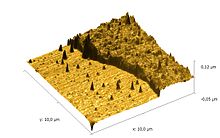Commons:European Science Photo Competition 2015/Rules and prizes/pl
Zasady

- European Science Photo Competition 2015 has been held in November. Only the images that were uploaded during that month were counted, except when the local competition was held in a different time-frame.
- For the photo to be considered scientific, it needs to have a good concrete description. Every photo must have a description at least in English. Give information about what is on the image, how and where it was made, what is important to notice. Example.
- Everyone except jury members are allowed to add images. Number of images per participant is not limited.
- Uploader must be the author of the photo. You can only participate with your own images or with images of which you are one of the authors. In the latter case, all the co-authors' names have to be provided.
- Images have to be published under free use license. Licenses offered in upload page are CC-BY-SA 4.0, CC-BY 4.0 and CC0 1.0.
- As this is a photo competition, we expect the images to be of good quality and size. Minimum size per image file is at least 2 Mpx, if possible by imaging technology used. The bigger, the better. If images are too small, then one solution could be to present them as a compilation in one file (example).
Competition is not limited to only "classical photos" as images in science can come at many shapes and forms. We do accept even computer generated images and we are fully aware that drawing specific boundaries to various categories is nearly impossible.
It's possible to add thematically linked images as sets: images added as one set compete as one image for any prize, including Grand Prix. Set starts from 2 linked images and may include up to 10 images.
Preferred file formats are .jpg for images, .ogg for video files and .png for computer generated files.
TLDR: as a participant, you only need to know, what images you want to submit and what is depicted on them. Just go to your local upload page and follow the instructions there.
Nagrody
Winners were selected on both regional and European level. There were several special prizes in various competition categories to draw attention to wider spectrum of scientific research and to encourage addition of diverse content to Wikipedia. Prizes themselves were specified after the talks with sponsors.
Sponsorzy
Competition was supported by Estonian Research Council.